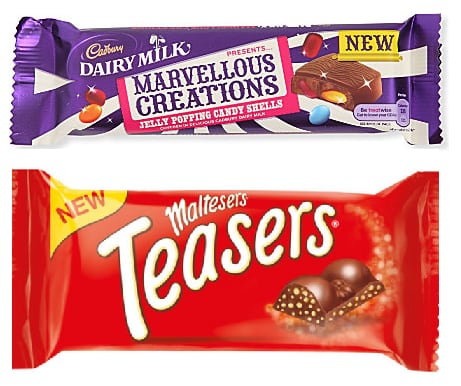Chocolate retail value sales in the UK declined 2.8% in the first half year (28 weeks up to 12 July) to £1.3bn ($2.2bn), while the overall confectionery market was stagnant.
Promotions and cheaper options
“Lots of people are trading down at the moment,” Tim Eales, director of strategic insight at IRI, told ConfectioneryNews.
“People are either taking advantage of trade promotions or are moving to lower priced forms of chocolate.”
IRI does not cover discount stores such as Lidl and Aldi and it could be that confectionery sales there are growing. “The traditional supermarkets are under so much pressure from the discounters,” said Eales.
Price hikes
At +2.5%, on-shelf chocolate prices in Q2 rose higher than overall grocery retail prices, which were up just 0.5%.
UK chocolate confectionery (28 weeks up to 12 July 2014)
- Value sales: £1.3bn ($2.2bn) -2.8%
- Volume sales: 143m Kg -5.8%
- Unit sales (packs sold): 1.56bn -4%
Source: IRI
“This has helped to fuel a trading down in the market place,” sales Eales.
Nestlé and Cadbury brand owner Mondelēz both implemented prices increases in H1 to offset rising input costs, particularly from cocoa.
In Q2 2014, UK consumers traded down by 2% on average across all groceries over the period, while they traded down by 2.6% in chocolate. The trend was more prominent in Q1 when trading down for chocolate was higher at 4.6%.
Successful launches
It could also be that consumers are moving to new products that are excluded from IRI’s like-for-like price comparison.
Cadbury Dairy Milk Marvellous Jelly Popping Candy by Mondelēz and Mars’ Maltesers Teasers were two products launched last year that were performing above the market average.
Both commanded higher retail prices than the overall market when launched, which Eales said was standard practice for new products hitting the market.
The chocolate industry was not alone in reporting sales declines. Eales said H1 2014 was the first time he’d ever seen overall packaged grocery value sales down in the UK. But in H1, chocolate sales fell faster than overall grocery sales, which declined just 1% compared to 2.8% for chocolate.

Health and ‘hot summers’
Some analysts have previously pointed out that UK consumers are becoming more health conscious.
“I’m not aware of a major trend away from chocolate on a health basis,” said Eales. However he said that chocolate had been banished from many supermarkets’ checkout aisles to make way for ‘healthy tills’, which could have had some impact.
Almost all the major supermarkets including Tesco, Sainsbury’s, Lidl and Aldi have banned confectionery from checkout zones, except some sugar-free gums.
The UK’s ‘hot summer’ could be another reason for chocolate’s demise. The mean temperate between 1 and 28 July 2014 in the UK was 16.3°C. That doesn’t sound much like a hot summer but it was 1.2°C above the 1981-2010 average.
